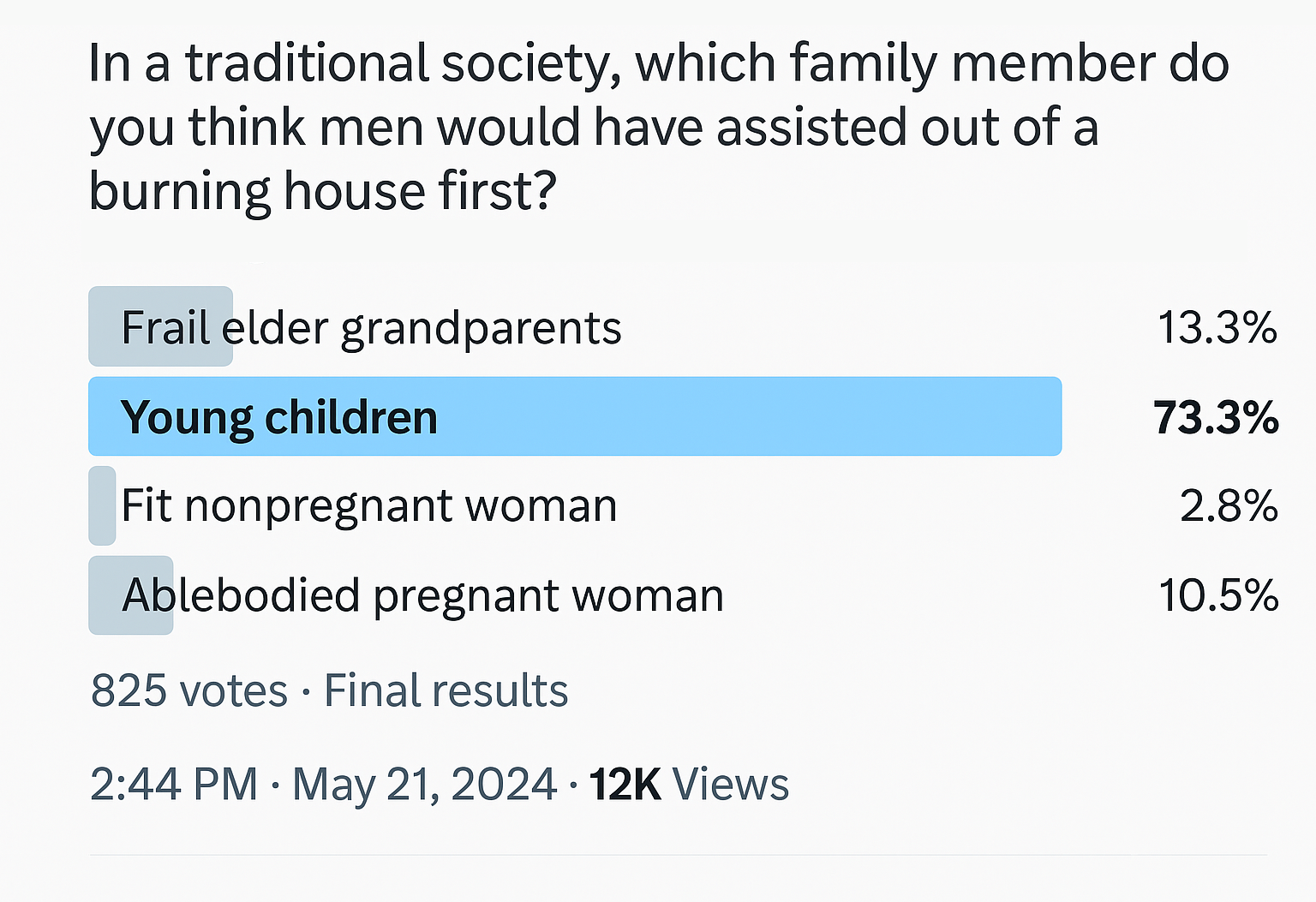Throughout history, men certainly performed caring acts for the good of their families and communities—but these gestures were not one-sided. Women, elders, and other family members also contributed their own sacrifices, creating a balance of mutual care. What we see in the historical record is not gynocentrism, but cooperation: family as a team.
Traditionally, men and women lived within family and community networks where everyone’s life and labor mattered, and protections were extended according to circumstance and need. Yes, women were sometimes prioritized for assistance, but so too were children, the elderly, the injured, or the sick. This was not evidence of a female-centered order—it was simply an expression of storge, the Greek word for familial love. Acts of care flowed in many directions, depending on who was most vulnerable in the moment.
To explore this point further, I conducted a small poll (see below). The question was simple: In a traditional society, which family member would men have rescued first from a burning house? One of the answer choices was “pregnant woman,” since pregnancy is often cited as the reason women supposedly always received priority.
The results were telling. Out of 825 respondents, the overwhelming majority believed that young children would be assisted first (73.3%). Frail grandparents came next (13.3%), followed by pregnant women (10.5%), and lastly non-pregnant women (2.8%). These responses reflect a common-sense principle: protection was given first to those in greatest need, not automatically to women.
Traditional family life was guided by the ethic of “all for one, and one for all.” Men, women, children, and elders were all valued, and any of them might become the priority depending on the situation. If an uncle broke his leg, he would be helped. If a grandfather fell ill, he would be cared for. If a child was in danger, he or she came first. To call care for a woman “gynocentrism” makes no more sense than calling care for an injured uncle “uncle-centrism.”
The idea that every act of familial kindness toward women must be reframed as evidence of a gynocentric order is a modern distortion—a projection of ideology onto the past. It reduces the complexity of human family life into a one-dimensional myth of female-centeredness. In truth, traditional society was not gynocentric, but family-centric.
